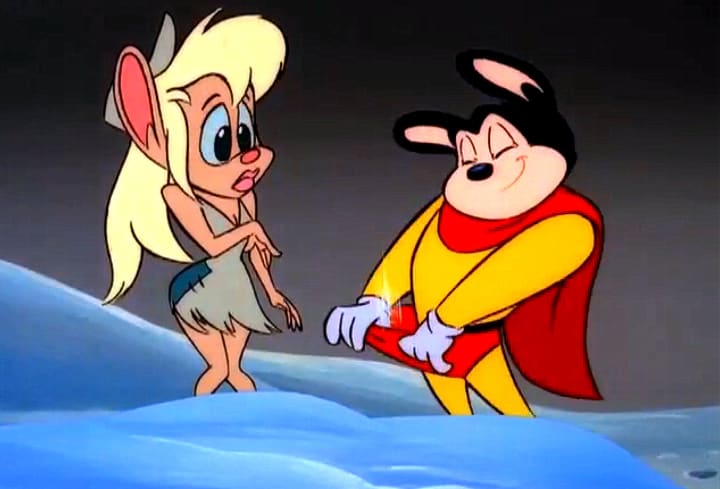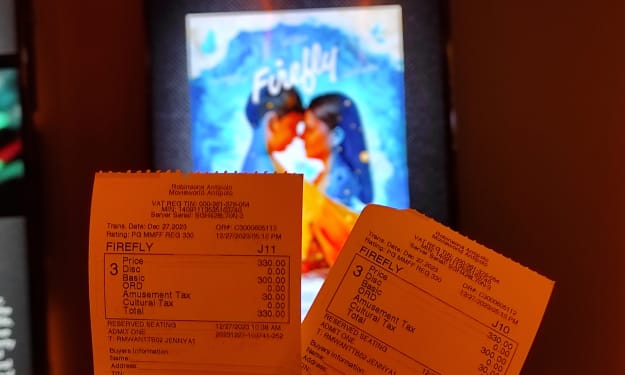They’re the questionably kid-friendly animations that sparked discussion, outrage, and censorship. Welcome to WatchMojo.com, and today we’re counting down our picks for the top 10 most controversial cartoon episodes.
From violence to racial and cultural insensitivity, the shocking material in these toons may make you want to reprogram your TV settings or tell your children to leave the room. Just a quick note: some of the images and themes of the cartoons on this list are regarded as highly offensive, so watch at your own discretion.
#10: “The Littlest Tramp” “Mighty Mouse: The New Adventures” (1987)

In Ralph Bakshi’s somewhat bizarre re-imagining of the classic 50s TV cartoon rodent, Mighty Mouse engages in his typical behavior of saving the city from various evil-doers. That is, until the episode known as “The Littlest Tramp,” in which he’s seen pulling a pink substance from his pocket and snorting it up his nose. While the name or the meaning behind this substance is never revealed in the episode, a member of the American Family Association alleged that it was clearly a substitute for cocaine. Though Bakshi denied this, CBS had the sequence permanently removed from future broadcasts.
Banned from Nickelodeon for depictions of extreme violence and tobacco usage, this episode was originally created for The Ren & Stimpy Show‘s second season. It features a sadistic drill sergeant as the new owner of the deranged animal duo, who has an affinity for giving cigars out as rewards for “good” behavior. It never aired as part of that series, and actually only saw airtime as part of the Ren & Stimpy “Adult Party Cartoon” spinoff in 2003. When Ren beats the pet owner senseless with a wooden oar, parents were shocked by the excessive brutality, causing the show’s creator to be fired from the production.
While this segment of the Tiny Toon Adventures episode called “Elephant Issues” was intended to promote a stance against drinking, the producers’ self-awareness of “the evils of alcohol” certainly missed its mark. After facing peer pressure to consume beer, Buster, Plucky, and Hamton quickly fall into a downward spiral as they arrive drunk at school, leer at women, steal a cop car and must face the consequences of driving under the influence. The graphic and careless behavior of characters designed to be watched by children was declared to be not only inappropriate, but irresponsible. Underage drinking is a no-no, people. Needless to say, this reckless PSA was banned from television for its alcoholic content.
During the height of Tom Cruise’s Scientology promotion, South Park creators Trey Parker and Matt Stone decided to take their own stance on the religion’s cosmic origins. While the animated sitcom has never been the kind of show to shy away from touchy subjects, this episode left Scientologists everywhere utterly speechless. Featuring tongue-in-cheek jabs at Tom Cruise’s sexuality, and portraying Scientology as a scam, “Trapped in the Closet” saw one airing before being banned from ever being viewed on the small screen again. It also resulted in longtime Chef voice actor and Scientologist Isaac Hayes to eventually quit the show.
This FOX network favorite has come under fire more than once for its less-than politically correct humor, such as when Chris dated a girl with Down Syndrome in Season 8. And this episode from the 3rd season is no exception. After foolishly squandering his family’s “rainy day fund,” resident buffoon Peter Griffin decides the only way to regain his financial stability is to hire a Jew. Peter’s prayers are answered when a Jewish man named Max Weinstein shows up and eventually leads to Peter’s attempt to convert Chris to Judaism. Due to its questionable anti-Semitic content, the episode was shelved from broadcast for several years. Several Fox divisions were also sued for the lyrics of the song “I Need a Jew” that parodied “When You Wish Upon a Star.”
In this episode of the acclaimed TV sitcom, the Simpson family travels to Brazil to find a missing orphan. However, it results in some problematic South American stereotypes, which include Homer getting kidnapped for ransom, Bart being devoured by a rainforest anaconda, and depictions of colorful rat-infested slums. The Brazilian government was less than pleased, citing concerns over the possibility of the loss of tourism revenue, so the creators issued an official apology to the city of Rio de Janeiro.
While this Cartoon Network adaptation of the popular comic strip has never been afraid of controversy and social commentary, this episode of The Boondocks took things to a whole other level. When Huey and Riley’s grandfather auditions to star in a new play by acclaimed playwright and spoof of real-life actor Tyler Perry, Winston Jerome, he quickly discovers that his desire for fame comes with a price. Featuring homophobic insinuations about Tyler Perry’s sexuality, this episode’s criticism of the popular actor and filmmaker was anything but subtle.
While the 40s were part of the “Golden Age” of cartoons, the decade was also a time of extreme racism and lack of civil rights for minorities, as evidenced in several cartoons from the era. This includes many of Merrie Melodie‘s war-themed cartoons, and more profoundly, in “All This and Rabbit Stew.” This one-reel cartoon short has Bugs Bunny being hunted by one of his would-be adversaries—however, this gun-toting woodsman is no Elmer Fudd. Portrayed as a big-lipped, dim-witted, and craps-crazy buffoon, the offensive caricature wasn’t uncommon, but was still disrespectful and remains insulting today. The shocking depiction of African-Americans landed the short on the infamous “Censored Eleven” list and remains a heart-breaking reminder of America’s racist history.
This successful children’s program had kids glued to their TV screens thanks to Ash Ketchum and his many Pokémon adventures. But this wasn’t necessarily a good thing when “Electric Soldier Porygon” aired. The strobe light visuals during the scene in which Pikachu delivers his lightning bolt attack caused over 600 children in Japan to experience seizures so severe most had to be hospitalized. The controversy caused Pokémon to take a 4-month hiatus, and Japanese television broadcasters to enforce strict guidelines for their programs to ensure a similar event would never be repeated.
Before we reveal our #1 spot, here are some honorable mentions:
- “Rude Removal” Dexter’s Laboratory (1998)
- “Comedians” Beavis and Butt-head (1993)
- “Beauty and the Beach” Pokémon (1997)
- “Deadly Force” Gargoyles (1994)
In this episode from South Park’s 14th season, the residents of the town are faced with the possibility of terrorist attacks for allowing the prophet Muhammad to appear in person. So they devise a plan to keep the image of the holy figure under wraps. A radical Muslim organization soon warned (or threatened—depending on who you ask) the series’ creators about the subplot, which caused Comedy Central to edit mentions of the prophet in the follow-up episode. With themes of free speech, religious tolerance, and censorship, the controversial “200” delivered with just the right amount of humor and bizarre understanding only the crazy world of South Park can get away with.
Do you agree with our list? Which cartoon episodes do you find controversial? For more cartoon and television lists published every day, be sure to subscribe to WatchMojo.com.
About the Creator
WatchMojo
Bringing you new top 10s every day. Subscribe today on Youtube.






Comments
There are no comments for this story
Be the first to respond and start the conversation.